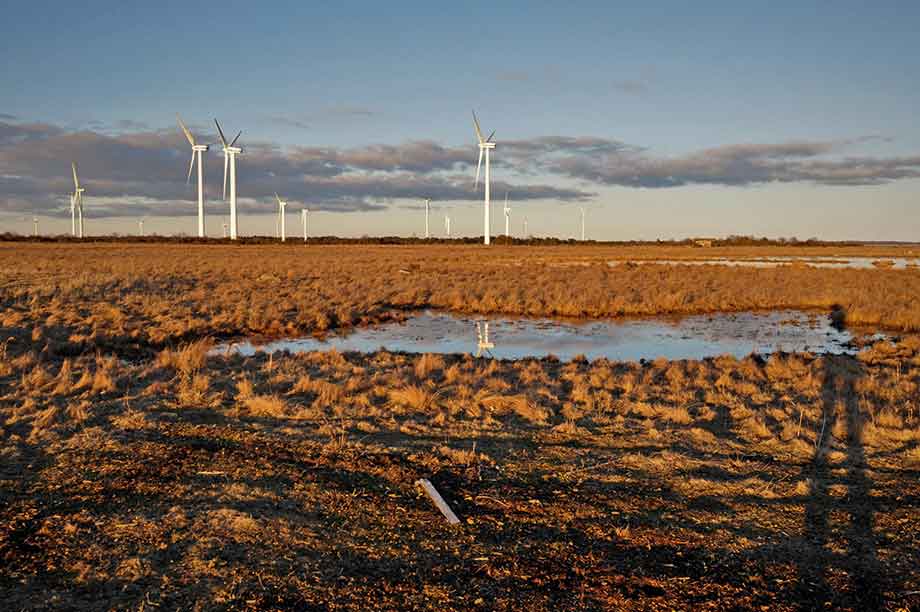Investment in wind power risks falling off a cliff-edge despite turbine contracts being awarded for nearly 2.5GW in the 12 months to the end of September, the Swedish Wind Energy Association (SWEA) has warned.
Turbine contracts were awarded for 403MW in Q3, up from 25MW in the same period in 2017. In the preceding 12 months, investment deals were agreed for 2,465MW — a record-high — SWEA figures show.
This flurry of contracts came as investors rushed to beat a "stop rule" to balance the electricity certificate system, shared with neighbouring Norway.
The impending changes threaten the profitability of previous investments and may deter potential future investors, the trade body believes.
Sweden introduced the green certificate system in 2003 and shares it with neighbouring Norway, which adopted it in 2012. Under the system, the Swedish and Norwegian governments grant electricity producers certificates for each megawatt hour produced. These certificates can then be sold on the open market to consumers that have to fulfil a quota obligation of certified, clean electricity.
The system aims to help Sweden reach its renewable electricity production target of 28.4TWh/year by the end of 2020 and 46.4TWh/year by 2030, SWEA explained.
However, it predicts the 2030 goal will be achieved by 2021, nine years ahead of schedule. The electricity certificate system is also now fully subscribed, creating a greater sense of urgency for a "stop rule" to be in place.
SWEA forecasts prices for renewable energy certificates in the open market will fall nearly 70% between 2020 and 2021 because of the newly installed capacity.
Need for change
In its recent report into how Sweden could source 100% of its electricity from renewables by 2040, SWEA said: "A major challenge is that there is no provision in Sweden governing how the green certificates system should be ended. An unbalanced shutdown of the system would lead to the supply of electricity certificates exceeding demand, and this would have serious consequences, particularly for early investors, as the sudden excess of certificates would destroy their value."
SWEA is pushing for the system to be closed and for the two countries to make a smooth transition to a fully merchant environment.
Norway has extended its certificate system until the end of 2021, but Sweden’s arrangement to boosting the allocated volume for electricity certificates will be voided when the 46.4TWh/year target has been reached. The Swedish Energy Agency is due to present proposals for re-designing a stop rule in December.
Mattias Wondollek, chairman of financial markets at SWEA, argued a time-based stop rule — like Norway’s — may lead to more renewable projects being built than required for the 46.4TWh target, flooding the market, and driving down value.
Meanwhile, in a memo released earlier this year, UK energy consultants Thema Consulting warned that a purely volume-based rule could leave certificates in short supply despite prices remaining positive. Investors could lose money if they miss out on certificates, while consumers would have to pay for new projects.
The energy consultants also said that simply extending the market would likely lead to certificate prices falling to zero.
Another solution could be a hybrid of volume- and time-based rules, which would grant investors a certain time to complete further transactions once investments reach a pre-agreed volume. Too little investment could lead to the same problems as a lack of certificates, while overinvestment could push prices close to zero, the consultants warned.
SWEA’s Wondollek added: "The most important thing is to introduce a stop-rule that prevents the system from crashing and making the green certificates worthless, but it is also very important to ensure legal certainty for new investments.
"Even though new investments need considerably less value on the certificates than in the past, it is still very important that investments agreed before the target has been reached will [translate into] certificates. Otherwise it will lead to legal uncertainty among the investors, which will damage the credibility of Sweden as a market with low political risk."
Charlotte Unger Larson, CEO of SWEA, said: "We must safeguard investor confidence in the Swedish market if we are to have a chance to attract the more-than €200 billion required to reach the target of a 100%-renewable power system by 2040."

.png)


.png)










